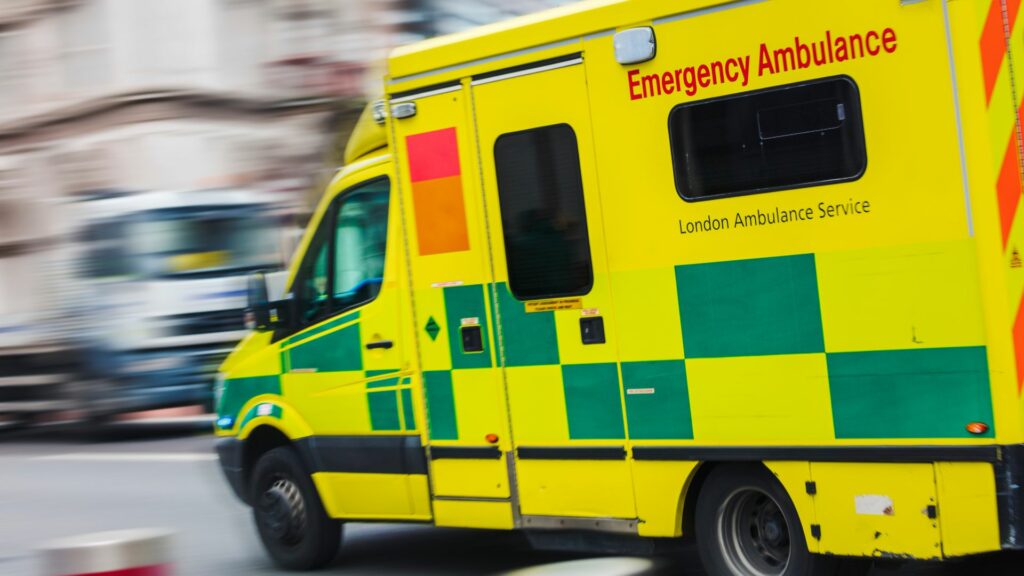
Recently, the Senior Coroner for Cornwall, Andrew Cox, found that Ambulance delays had contributed to the deaths of three people in Cornwall. These were either delays in an ambulance arriving, or delays offloading a patient on arrival at hospital.
- David Morganti waited for 9 hours for an ambulance to arrive after falling and suffering a brain injury.
- Winnie Barnes-Weekes had a fall in her care home and lay on the floor for 19 hours waiting for an ambulance which never arrived.
- Anthony Reedman needed an emergency ambulance after a stroke but there was none available as they were all still stacked up at RCHT waiting to offload patients from earlier calls
By the time they each got to the hospital, it was too late to start treatment which would have given each a chance of survival – It was too late to save them.
A fourth patient died after he had been kept in hospital because arrangements couldn’t be made for him to be looked after safely at home.
Ambulance Response Times
According to data published by NHS England, the ambulance response times for urgent conditions appear to be the slowest since the measures were put in place back in 2017. That means that patients needing emergency attention may find themselves waiting for much longer than expected.
How are ambulance response times measured and what do they mean?
Ambulance Services are measured by the time it takes from receipt of the 999 call to a vehicle arriving at the patient’s location.
Targets depend upon the category of the emergency:
- category 1 requiring an immediate response to a life threatening condition such as cardiac or respiratory arrest;
- category 2 concerning a serious condition such as stroke or chest pain which may require rapid assessment and/or urgent transport,
- category 3 being an urgent problem requiring treatment and transport in an acute setting and
- category 4 dealing with a non-urgent problem such as stable clinical cases requiring transport to a hospital ward or clinic.
The target response times are an average of:
- 7 minutes for category 1;
- 18 minutes for category 2,
- category 3 incidents to be responded to at least 9 out of 10 times within 120 minutes and
- for those category 4 calls requiring response, the response time being within 180 minutes in 9 out of 10 cases.
The NHS England data shows that in October 2022, none of the Ambulance Services outside of London met these targets (NHS England Ambulance Quality Indicators, AmbSys time series to October 2022).
The average response time overall for England excluding London was:
- 9 minutes 56 seconds for category 1; with the longest average response time being 11 minutes and 12 seconds for the East of England and 11 minutes and 11 seconds for the South Western region
- one hour, 1 minute and 19 seconds for category 2; with the East of England having the slowest average response time of over 1 hour and 26 minutes followed by West Midlands at 1 hour and 13 minutes and the South West at 1 hour and 12 minutes
- 3 hours, 34 minutes and 34 seconds for category 3 with what stands out here being the degree of variation between the response times in different parts of the country with the Isle of Wight having the quickest response at 1 hour and 22 minutes compared to a response of around 5 hours in the West Midlands. That is a very long time considering that category 3 covers a big variety of incidents including those patients that have had a non-life threatening accident and need urgent care to tend to fractures and other non-fatal injuries
- 4 hours, 1 minute and 52 seconds for category 4, with the West Midlands response time averaging at over 5 hours, 20 minutes followed by the North West with 5 hours 16 minutes and the East of England with 4 hours 26 minutes.
What are the reasons for the delays?
All these delays were said to be ultimately due to bed-blocking when hospitals are unable to discharge patients into the community even when medically fit to go home. This creates a bottleneck where patients can’t come into hospital because the beds are full. There are more needing to come in than are going out and there is no room.
These are questions for Government, and for the NHS and Social Care bosses, and come down to funding. The Coroner wrote to Health Secretary Steve Barclay, requiring him to consider taking action to prevent future deaths from delays and explain what steps he would take, with a timetable for action, by 10 January 2023.
What does this mean for patients?
GPs that have spoken to the media about the long delays have said that where their patients are not having a heart attack or a stroke their standard advice is to make their way to the hospital using a private vehicle or taxi.
According to NHS sources, the delays are put down to overcrowded hospitals with otherwise fit-to-go-home patients who cannot be discharged as there are no safe and available community settings for them to continue their recovery at. As a result of the bottleneck at the discharge point, there is no space for new patients to be brought in and ambulances end up queueing outside of hospitals waiting to discharge their patients. The Association of Ambulance Chief Executives (AACE) recently published statistics showing that 42,000 patients had to wait in an ambulance for over an hour before being admitted to A&E and according to their estimation over 35,000 patients experienced potential harm as the result of the August delays with just under 4,000 of them experiencing severe harm.
The biggest challenges are faced by patients suffering from breathing difficulties and other severe but not immediately life-threatening conditions and symptoms who sometimes have to wait for hours to be seen. The response times guidelines were set up based on the severity of someone’s symptoms and the emergency with which they need to be in hospital for their condition to be properly managed and avoid preventable deterioration.
We all understand our precious Ambulance Service is massively challenged, over-stretched and we admire the bravery and dedication of paramedics and technicians. However, we are taking calls
almost daily from people who believe that delays in collection or delivery to hospital are not only making the patients’ injuries worse, or recovery longer, but in some cases are directly causing death. Delays are reported to be getting longer and there is no cure in sight.
We are medical negligence solicitors and we’re here to help
If you or a loved one have suffered from delays that have had a significant effect on your health and would like to speak to an expert solicitor about it, a member of our team would be happy to have a free confidential discussion with you. Contact Us today to arrange yours.




















